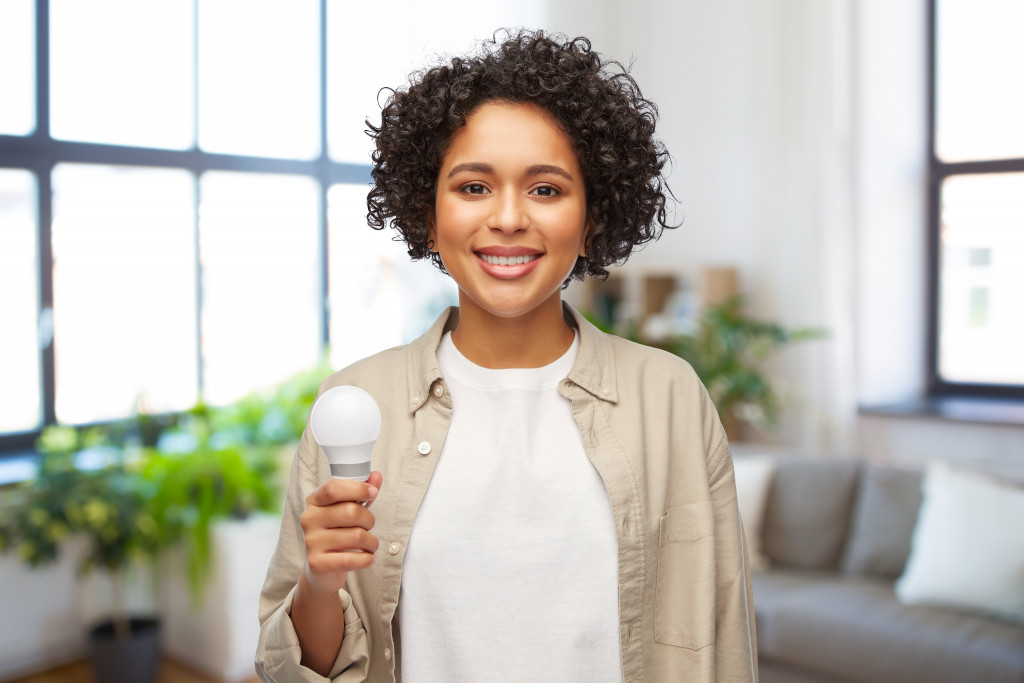Making your house energy efficient is important for a variety of reasons. It can help you save money on utility bills, make your home more comfortable, and reduce environmental impact. Here are six ways you can make your house more energy efficient:
Use Energy-Efficient Appliances
investing in energy-efficient appliances is an easy way to reduce overall energy consumption. Energy Star-certified appliances can save you hundreds of dollars yearly on your energy bills. For example, a refrigerator with an Energy Star certification is 15 percent more efficient than the minimum federal standards. This could save you $50 a year in energy costs.
You can leave a smaller ecological footprint by switching to energy-efficient appliances. Energy efficiency lowers greenhouse gas emissions and other pollutants, such as water wastefulness.
Seal Air Leaks
Another way to make your home more comfortable and reduce energy costs is to seal air leaks. Caulking and weatherstripping are two simple and inexpensive ways to do this. You can also replace residential glass cracked windows with more efficient options. Install low-emissivity glass or double glazing to insulate your home against extreme temperatures.
Caulking and replacing glasses will also prevent outdoor pollutants like pollen and dust from entering the home. This improves indoor air quality and makes it a healthier space for you and your family. Not only will this make your home more comfortable, but it also decreases the heat transfer from inside to outside and vice versa. In other words, you won’t have to run your heating and cooling as often because the temperature is retained for a longer period.
Upgrade to LED Lighting
Incandescent bulbs are inefficient and generate a lot of heat. LED bulbs are much more efficient and last up to 25 times longer than incandescent bulbs. Replacing just a few light bulbs with LEDs can save you money on your monthly energy bills. LEDs are much more efficient than other forms of lighting because most of their energy goes toward creating light instead of heat.
You can start by replacing the bulbs in your most-used rooms and work your way around the house. If you want to take it a step further, you can also look into other forms of energy-efficient lighting. You can use smart bulbs to adjust the brightness and color temperature and put them on timers.
Install Insulation
Many homes are under-insulated, leading to higher heating and cooling costs. Adding insulation to your walls, attic, and floors is a great way to improve your home’s energy efficiency. By insulating your home, you are stopping heat from escaping and, as a result, will save money on heating and cooling costs. Properly insulating your home reduces heating and cooling costs and improves comfort. Not to mention, insulation stops moisture from seeping in and also blocks out noise pollution.
There is also reflective insulation wherein a radiant barrier is installed on the attic floor. This reflects heat radiated into the attic by a hot roof and prevents it from entering the living space below. This insulation is particularly beneficial in hot climates since it helps keep your house cool. When you improve your home’s insulation, you can see energy savings of up to 20% on your bills.
Open the Curtains During the Daytime
Taking advantage of natural sunlight is a great way to reduce your reliance on artificial lighting during daytime hours. Open curtains and blinds when the sun is out to let in as much light as possible. If you don’t have many windows at home, install skylights in your attic or other areas to let natural light in. By utilizing natural light, you can reduce energy costs and improve the overall ambiance of your home. Not to mention, it can help put a smile on your face and boost your mood.
You can also choose energy-efficient drapes with reflective or thermal backing to block out heat during the summer months. This will help keep your home cool in the hot weather, so you don’t have to rely on air conditioning as much.
Close the Curtains at Night
Once the sun goes down, close all the curtains and blinds in your home. This will help keep heat from escaping through windows, keeping your home warmer during winter. Closing the curtains also prevents cold air from entering your home and keeps it comfortable.
You can also use curtains that are made of blackout fabrics to block out natural light when necessary. These curtains are usually lined with a thick fabric and have an additional layer that blocks out 95% of the sunlight from your windows. This can be helpful during summertime if you don’t want too much heat entering your home or during winter when you need to keep the warmth.
Making your house more energy efficient is important for financial and environmental reasons. You can do many things to make your home more energy efficient, from using Energy Star appliances to sealing air leaks around doors and windows. These simple steps can help you save money on utility bills while reducing your carbon footprint.


